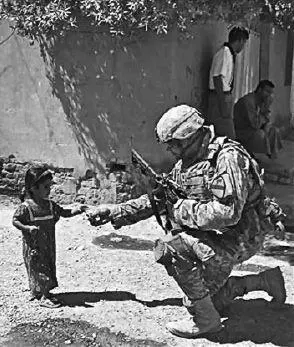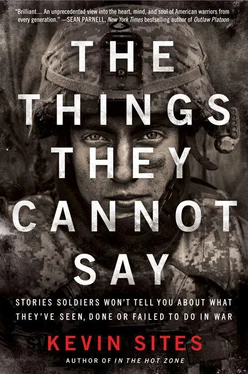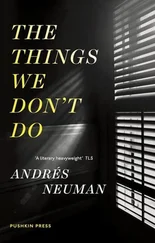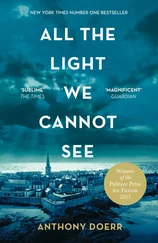For Iscol, this was not nearly good enough, especially since the man who had helped keep him and his Marines alive in Iraq was now the target of death squads. He began writing letters and making calls, using some of his parents’ political connections, even walking the halls of Capitol Hill in his Marine dress blue uniform, knocking on office doors of senators he believed could help. His persistence finally paid off when Iscol was allowed to testify on Capitol Hill on behalf of Abood and other Iraqi interpreters. The day he spoke, Abood and his family were granted refugee status. Six months later they were in New York.
“It’s great that happened,” Iscol says, “but do we have to hold a hearing every time we try to bring someone here?”
Iscol helped set Abood up in a hotel owned by family friends and then helped him and his daughters get jobs as interpreters. While the impact for Abood was immediate, Iscol’s work also helped to pressure the government to increase the number of special immigrant visas for people like Abood, who assist American military or policy efforts abroad and then become targets because of it.
Iscol didn’t intend his efforts as a kind of reparation for the shooting of the Iraqi driver by Marines under his command, but it did highlight his determination to prove that an Iraqi life is no less valuable than an American one.
Even so, he wasn’t done yet. The young man raised on the exhortations of Exeter Academy’s founder John Phillips to combine knowledge with goodness in the service of mankind had more he wanted to give.
“War demands the best and worst of man,” he said in an interview with Fast Company magazine about his new project, a documentary titled The Western Front concerning his experiences in Iraq and echoing its namesake, Erich Maria Remarque’s novel All Quiet on the Western Front , as well as the questions the book raises about the value and purpose of war. “Fallujah was a very tough fight and I saw and participated in some pretty awful stuff.”
Rather than recoiling from his war’s memories and his own mistakes, Iscol sought them out aggressively. He wanted to understand his choices and how they might be instructive in the future, both to himself and his country. It was in the pursuit of this documentary that Iscol first came to me. Because of my “notorious” video of the shooting in the mosque, he knew that I had been embedded with another company in his battalion during Operation Phantom Fury. He sent me an e-mail asking to use some of the video I shot in his film. At first I reacted negatively, even harshly, to the request. Early on I had taken a lot of grief from ex-Marines for releasing the mosque video. But then almost invariably, I would get requests from them years later, asking for some of my other battle footage to use in memorial videos or personal highlight reels. I thought Iscol was requesting the same. But he explained his project and then asked to do an interview with me about what I had seen in Fallujah. Although it never made it into the film (it complicated the narrative, which was about Iscol’s experiences, not mine), I began to trust that he was really struggling with his choices in war and this was the vehicle in which he could both explore them and perhaps find some closure, by sharing their lessons.
He was attempting to break the destructive grip of some of his wartime experiences by listening to that most important voice. J. Glenn Gray comments on this voice inside of us in The Warriors: Reflections on Men in Battle : “Whatever his response, the person who hears the call of conscience is aware of freedom in the form of a choice. He could have performed differently than he did; an act of his might have been different. The whole realm of the potential in human action is opened to him and with it the fateful recognition that he is in charge of his own course. Conscience is thus the first instance in the form of self- consciousness. It is that form that gives to us an unmistakable sense of free individuality and separates for us the domains of the actual and the ideal. Therewith the life of reflection begins, and the inner history of the individual no longer corresponds to his outer fate.”
The need to help Abood as well as to produce a documentary about his own mistakes and his shifting belief system were part of Iscol’s attempts to extricate himself from that “outer fate.”
“I began to wonder if we as a country needed to rethink our reliance on the use of force to keep us safe and why we, as a nation, we had not evolved,” Iscol said in the same Fast Company interview. “We are fighting two wars that didn’t even register as election year issues. Having our troops engaged in combat over there might make us feel safer back home, but are we as a nation simply repeating the same mistakes we made at that checkpoint?”
But Iscol is impatient for answers. In the documentary, he travels back to Iraq, no longer as a Marine carrying a weapon, but as a man carrying his conscience. He is looking for more from his time in war than just stories with unsatisfactory endings. He is seeking, simply, perhaps nobly even, to understand.
Postscript
Iscol has kept up a breakneck pace since his return from Iraq. He’s the founder and CEO of a tech startup company called HirePurpose that uses analytical tools to match transitional job seekers, such as military veterans, with employers. He also serves as executive director of the Headstrong Project, a nonprofit focused on developing cost- and stigma-free mental health care for Iraq and Afghanistan veterans. His documentary, The Western Front , screened at the Tribeca Film Festival and is scheduled for release in 2013.
Part V: Moral Ambiguities
How Do You Know What’s Right?
War fills our spiritual void. I do not miss war, but I miss what it brought.
—Chris Hedges, author, ex–war correspondent From
War Is a Force That Gives Us Meaning , Chris Hedges (Public Affairs, 2002)
Chapter 9: Morris Versus Mo
There are those that need killing and those that need helping.

Colonel Morris Goins, U.S. Army
1st Battalion, 12th Cavalry
The War in Iraq (2006–08)
Morris Goins had been home from Iraq for almost nine months. There had been some adjustments, even some counseling sessions, but for the most part he felt like he was doing all right. And then one day he was driving down the road near Fort Hood in Texas and he hit a squirrel with his truck.
“I almost pulled over and called my mother,” he says. “It hurt so much to kill something. Or I’m fishing and I hook a bass in the gut and it’s bleeding. I feel the same thing, then tell myself, ‘It’s just a fish, bro.’”
But Goins isn’t some hot mess, one roadkill away from a nervous breakdown. He’s a highly decorated U.S. Army colonel, ambitious, smart, even managing an enviable balance between work and family, despite long months away on “business.”
Some say he’s at the top of his game, and there’s plenty of evidence to support that. When I first meet him he’s in the middle of a prestigious National Security Fellowship at Harvard’s Kennedy School. I wonder if he’s running for mayor or already has the job, as I watch him work the tables in the lobby area of the Kennedy School, known as the Forum, a popular spot for high-profile socializing in between classes. He smiles, waves, shakes hands and generally carries himself with the energetic jaunt of a successful entrepreneur or celebrity chef.
Читать дальше













